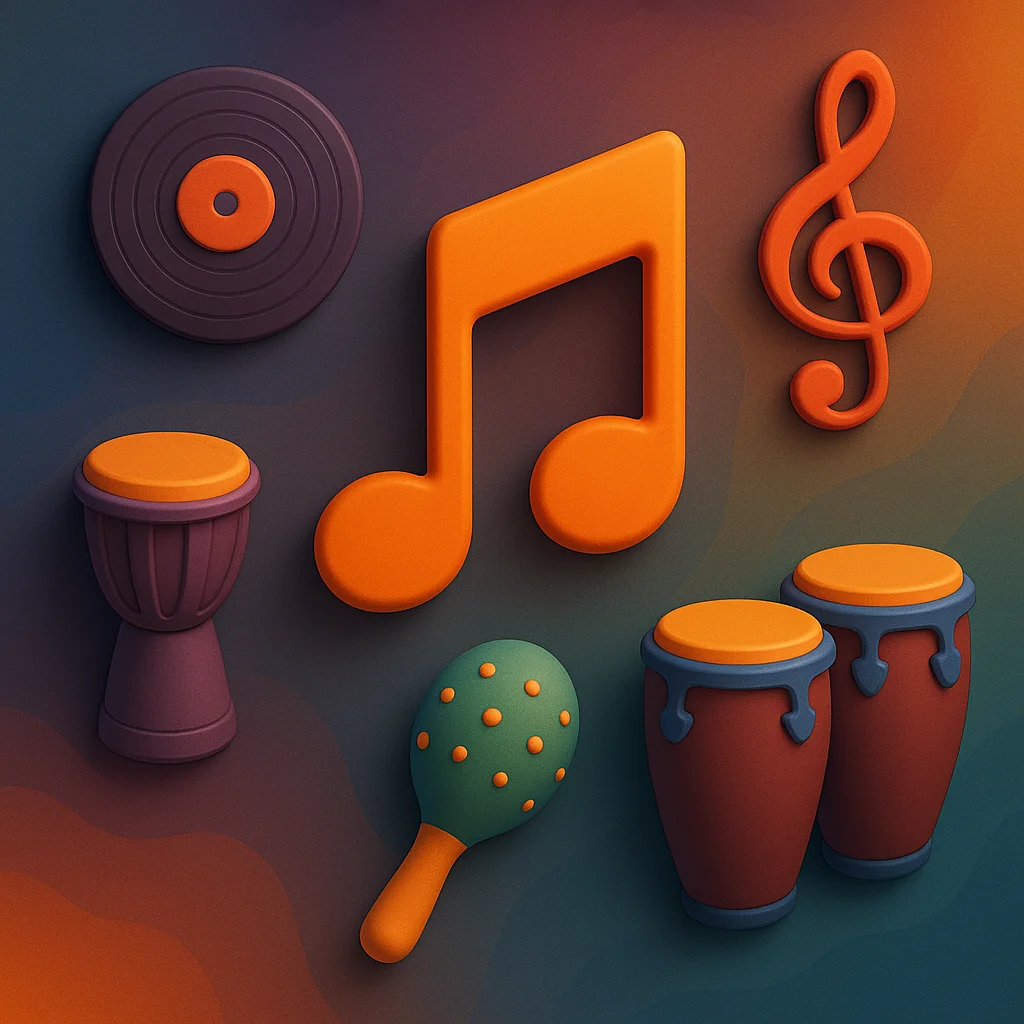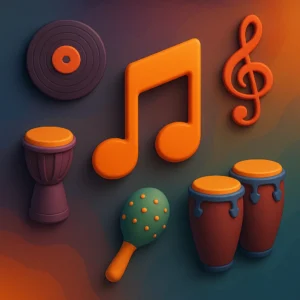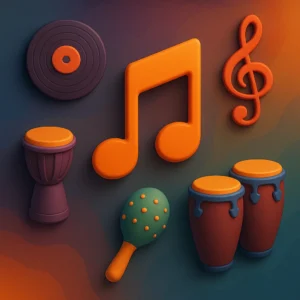Long before studios and streaming, Africa sang its stories through tribal rhythms, chants, and ceremonial songs. Traditional African music is the soul of the continent—rooted in identity, spirituality, and oral history. Spanning thousands of ethnic groups, this music is diverse, deeply cultural, and foundational to modern African genres like Afrobeats, Amapiano, and Bongo Flava. Here’s your complete guide to the timeless sounds of Africa’s traditional and tribal music.
What Is Traditional African Music?
Traditional African music refers to the ancestral musical styles, instruments, and vocal practices used by different tribes and communities across Africa. These musical traditions are passed down through generations and are often tied to ceremonies, rituals, festivals, storytelling, healing, and community life.
Core Elements:
-
Polyrhythms: Multiple rhythms layered together, played with drums, claps, or percussions
-
Call and response: A lead singer or drummer initiates, the group responds
-
Repetition and improvisation: Cyclical patterns with room for spontaneous expression
-
Instruments: Drums (djembes, talking drums), flutes, harps (kora), string instruments (ngoni, krar), xylophones (balafon), and thumb pianos (mbira)
-
Languages: Lyrics are in local dialects and often carry spiritual or historical meaning
Cultural Significance
Traditional music is more than entertainment—it’s a functional part of life:
-
Rites of passage: Birth, initiation, marriage, and death
-
Spiritual ceremonies: Communicating with ancestors or spirits
-
Healing rituals: Music as medicine through trance and dance
-
Storytelling: Griots in West Africa preserve history and genealogy through song
-
Unity and identity: Music strengthens bonds and tribal belonging
Major Regional Styles & Traditions
🎵 West Africa (Mali, Senegal, Nigeria, Ghana)
-
Griot music: Performed by hereditary storytellers like Toumani Diabaté or Salif Keita
-
Instruments: Kora (21-string harp), balafon, djembe, talking drum
-
Styles: Mandé music, Yoruba bata rhythms, Hausa ceremonial music
🎵 Central Africa (DR Congo, Cameroon)
-
Pygmy music: Known for polyphonic singing and vocal harmonies in the forest regions
-
Dance rituals: Accompanied by complex drum ensembles and chants
🎵 East Africa (Kenya, Tanzania, Uganda, Ethiopia)
-
Maasai and Samburu chants: Deep vocal traditions used in rites and warrior ceremonies
-
Ethiopian scales: Traditional modes (qenet) influencing modern Ethio-jazz
-
Instruments: Krar (lyre), nyatiti (lute), and log drums
🎵 Southern Africa (South Africa, Zimbabwe, Namibia)
-
Mbira music: Thumb piano used in Shona spiritual ceremonies
-
Zulu & Xhosa choral music: Known for call-and-response and powerful vocal projection
-
Instruments: Uhadi (bow instrument), marimbas, drums
🎵 North Africa (Morocco, Algeria, Egypt)
-
Berber and Gnawa music: Spiritual trance music blending African and Arab traditions
-
Instruments: Guembri, bendir, oud
-
Rhythmic complexity: Deep ties to Islamic, Sufi, and ancestral practices
Influence on Modern African Music
Traditional and tribal music is the root of every major African genre today:
-
Afrobeats: Built on Yoruba percussion and call-response singing
-
Amapiano: Modern take on South African house with indigenous rhythmic structures
-
Bongo Flava: Draws from Taarab and Swahili traditional chants
-
Highlife & Soukous: Evolved from tribal dance music and guitar mimicry of traditional melodies
-
Gqom & Kwaito: Rhythmic echo of Zulu tribal chants and ceremonies
Many contemporary African artists incorporate traditional instruments or languages into their tracks to preserve and modernize their heritage.
Key Traditional Artists & Cultural Ambassadors
-
Toumani Diabaté (Mali) – Master of the kora, preserves Mandé music globally
-
Oumou Sangaré (Mali) – Blends Wassoulou tradition with modern messages
-
Oliver Mtukudzi (Zimbabwe) – Fused mbira sounds with Afro-jazz and storytelling
-
Youssou N’Dour (Senegal) – Famous griot lineage, brings mbalax to the world stage
-
Aurelio Martinez (Honduras/Garifuna) – Defends Afro-Indigenous traditions through music
Final Thoughts
Traditional and tribal music is the beating heart of African culture. It’s sacred, communal, and deeply emotional—transcending generations and geography. While modern genres may dominate the charts, these ancestral rhythms remain ever-present, reminding us that Africa’s most powerful music is rooted in its past.
Whether it’s the trance of a mbira, the cry of a talking drum, or the chants of a nomadic tribe, traditional African music continues to inspire, heal, and move the world.




